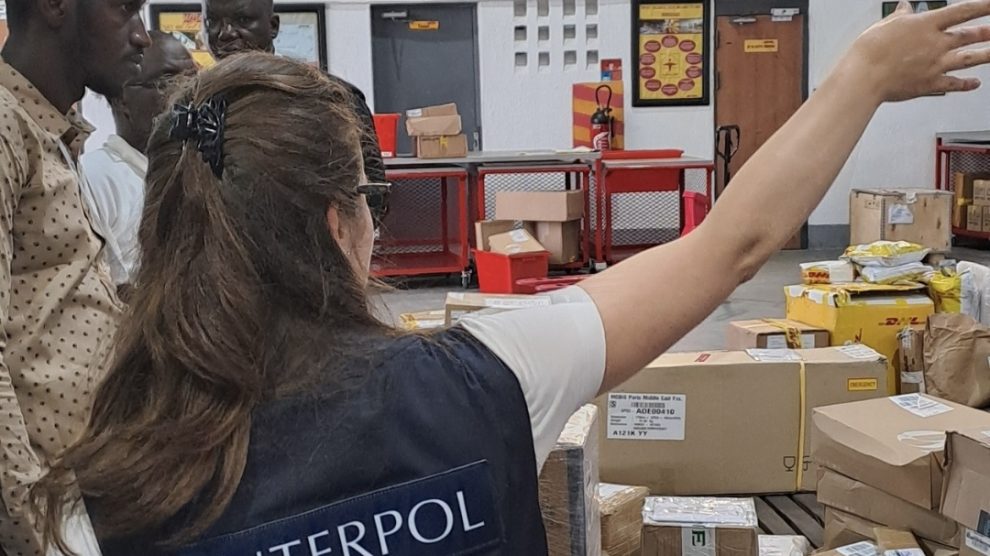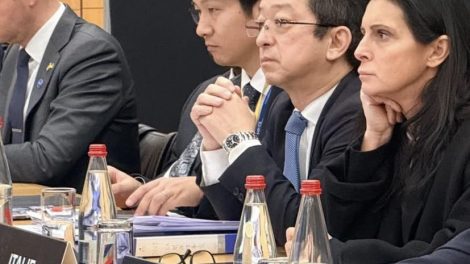A first-of-its-kind operation targeting terrorism financing and the illegal activity supporting it, last week, has led to 83 arrests across six African countries and the identification of 160 persons of interest.
Why it matters: The joint INTERPOL–AFRIPOL operation has revealed how cryptocurrencies are now integral to Africa’s terror-financing architecture.
- The discovery connects three converging dynamics: the fragility of Sahel states, the evolution of online financial crime, and the adaptability of jihadist groups to digital ecosystems.
Operation Catalyst – The facts:
- Duration: July–September 2025
- Countries involved: 17, mainly Nigeria, Kenya, Cameroon, Angola
- Total losses: $562 million stolen from 100,000 victims
- Funds linked to terrorism: $260 million traced, $600,000 seized
- Arrests: 83 (21 terrorism, 28 fraud, 16 cyber, 18 crypto-related)
- Entities screened: 15,000+ individuals, 160 persons of interest
The crackdown dismantled fake trading platforms and froze assets across six African countries. The operation confirmed that crypto-assets are increasingly used to finance extremist activities.
Chronology – How Operation Catalyst unfolded:
- Coordinated by INTERPOL and AFRIPOL over two months.
- Used digital forensics from Binance, Moody’s, and Uppsala Security to trace wallets.
- Exposed Ponzi-style investment schemes diverting funds to jihadist networks.
- Led to multiple arrests, seizures, and the identification of transnational crypto channels tied to terror financing.
Operational picture – How it worked:
- Tactics: fake platforms, multiple wallets, fiat conversion to conceal transfers.
- Target markets: retail investors in Nigeria, Kenya, Cameroon, and Namibia.
- Method: Ponzi recruitment through social media and informal VASPs.
- Objective: fund terror cells under a crypto-investment front.
- Outcome: networks dismantled; several states tightening anti–money laundering rules.
What’re they saying: “Operation Catalyst is the first time, financial crime, cybercrime and counter-terrorism units from multiple African countries have joined forces with INTERPOL and AFRIPOL to target the financing of terrorism,” INTERPOL Secretary General Valdecy Urquiza said.
- ”This joint endeavour, dedicated to disrupting the financing of terrorism across the African continent, illustrates how coordinated action between Member States, facilitated by AFRIPOL and INTERPOL, can effectively address complex and evolving security threats,” Ambassador Jalel Chelba, AFRIPOL’s Executive Director, added.
Zoom in: Italy’s POV. In an interview published today, Foreign Minister Antonio Tajani raised Italy’s attention on African security, linking it directly to national interests and the geo-economy of the Enlarged Mediterranean.
- Rome views Sahel instability not only as a security concern but also as a strategic variable for energy flows, migration routes, and maritime safety.
Zoom out: The Trump factor. The INTERPOL findings coincide with U.S. President Donald Trump’s announcement of a new offensive against jihadism in Nigeria, amidst the countries involved in an anti-fraud operation.
- Trump threatened to suspend aid and consider military action to halt what he called the “persecution of Christians.”
- The Nigerian government denied the allegations, but Washington’s message was unmistakable: Africa is once again a strategic front in the global fight against terrorism — and a new arena for power competition.
What we’re watching:
- INTERPOL and AFRIPOL are preparing a second phase focused on crypto–terror links in the Sahel.
- African governments are drafting common frameworks to regulate digital assets and exchanges.
- The EU is pushing for greater intelligence cooperation and financial transparency.
- Italy is seeking a leading role, following the strategy outlined in the Mattei Plan.
- The U.S. is signalling a tougher stance on African terror networks as part of its global security posture.
(Photo: X, @INTERPOL_HQ)





